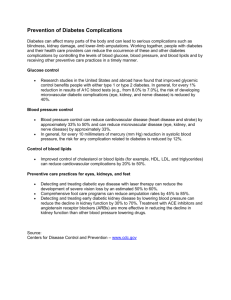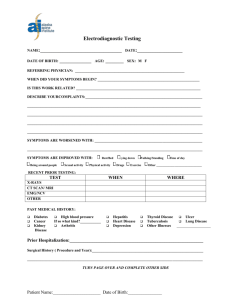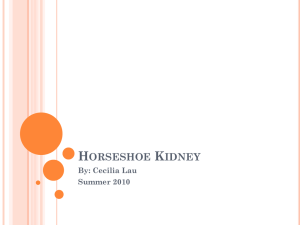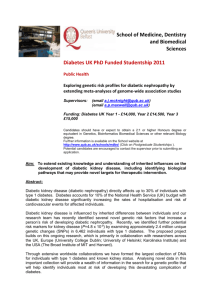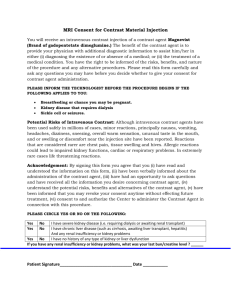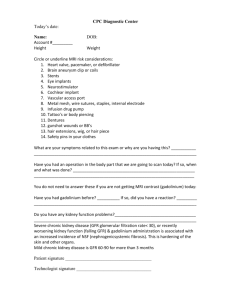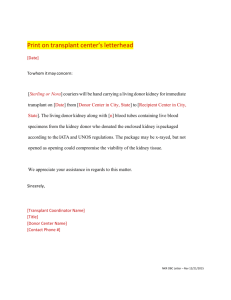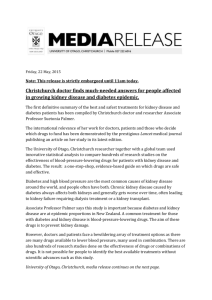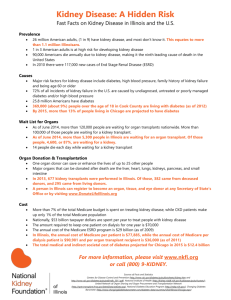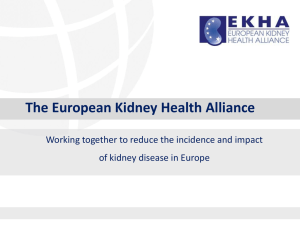Diabetes & Kidney Failure - Saudi Diabetes & Endocrine Association
advertisement
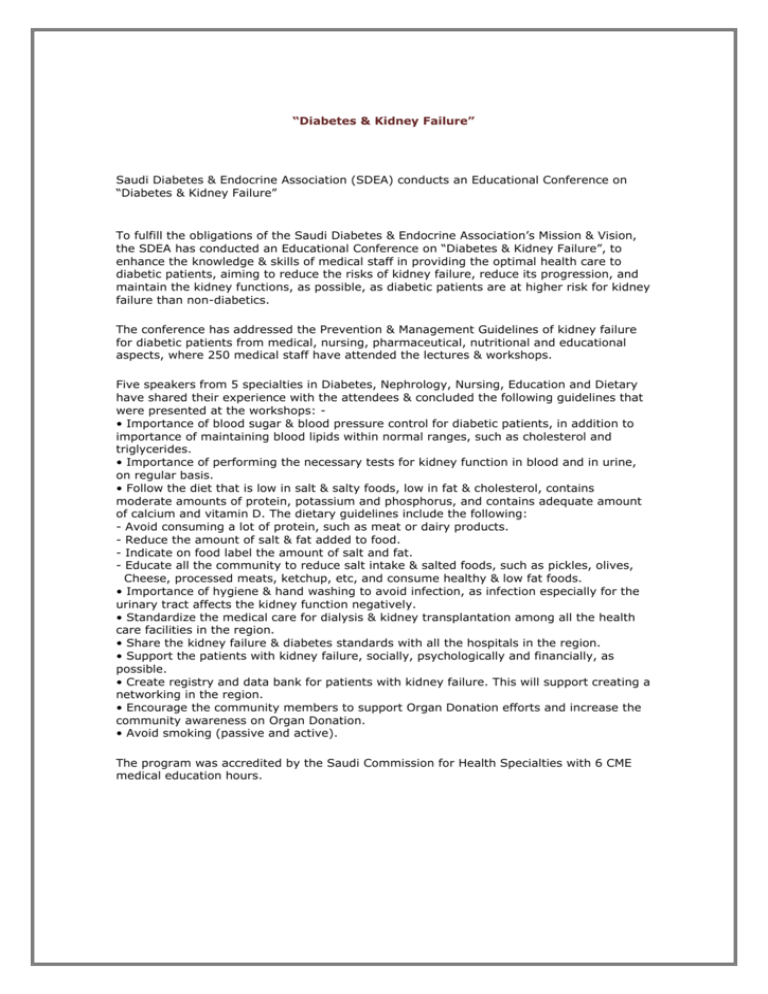
“Diabetes & Kidney Failure” Saudi Diabetes & Endocrine Association (SDEA) conducts an Educational Conference on “Diabetes & Kidney Failure” To fulfill the obligations of the Saudi Diabetes & Endocrine Association’s Mission & Vision, the SDEA has conducted an Educational Conference on “Diabetes & Kidney Failure”, to enhance the knowledge & skills of medical staff in providing the optimal health care to diabetic patients, aiming to reduce the risks of kidney failure, reduce its progression, and maintain the kidney functions, as possible, as diabetic patients are at higher risk for kidney failure than non-diabetics. The conference has addressed the Prevention & Management Guidelines of kidney failure for diabetic patients from medical, nursing, pharmaceutical, nutritional and educational aspects, where 250 medical staff have attended the lectures & workshops. Five speakers from 5 specialties in Diabetes, Nephrology, Nursing, Education and Dietary have shared their experience with the attendees & concluded the following guidelines that were presented at the workshops: • Importance of blood sugar & blood pressure control for diabetic patients, in addition to importance of maintaining blood lipids within normal ranges, such as cholesterol and triglycerides. • Importance of performing the necessary tests for kidney function in blood and in urine, on regular basis. • Follow the diet that is low in salt & salty foods, low in fat & cholesterol, contains moderate amounts of protein, potassium and phosphorus, and contains adequate amount of calcium and vitamin D. The dietary guidelines include the following: - Avoid consuming a lot of protein, such as meat or dairy products. - Reduce the amount of salt & fat added to food. - Indicate on food label the amount of salt and fat. - Educate all the community to reduce salt intake & salted foods, such as pickles, olives, Cheese, processed meats, ketchup, etc, and consume healthy & low fat foods. • Importance of hygiene & hand washing to avoid infection, as infection especially for the urinary tract affects the kidney function negatively. • Standardize the medical care for dialysis & kidney transplantation among all the health care facilities in the region. • Share the kidney failure & diabetes standards with all the hospitals in the region. • Support the patients with kidney failure, socially, psychologically and financially, as possible. • Create registry and data bank for patients with kidney failure. This will support creating a networking in the region. • Encourage the community members to support Organ Donation efforts and increase the community awareness on Organ Donation. • Avoid smoking (passive and active). The program was accredited by the Saudi Commission for Health Specialties with 6 CME medical education hours.
